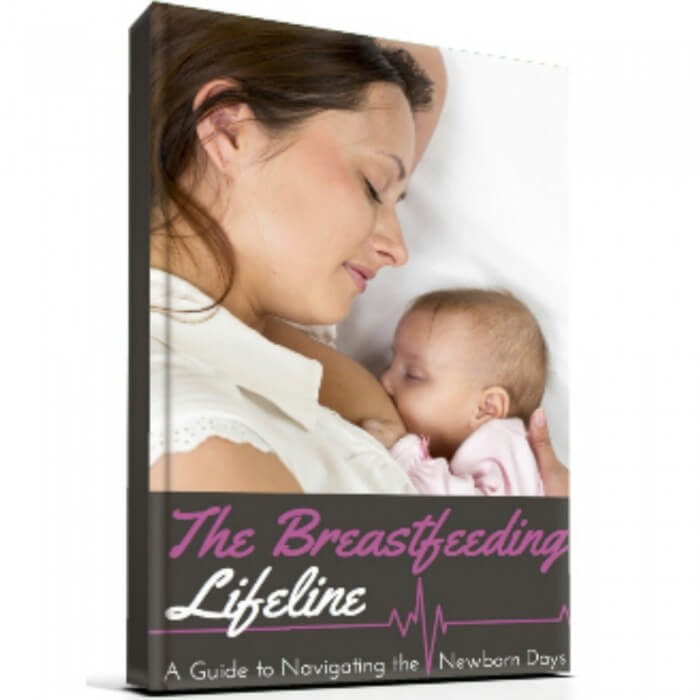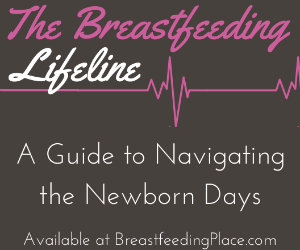 Most new mothers know, or suspect, that there are things they need to do to prepare for successful breastfeeding. Perhaps you’ve signed up for a breastfeeding class, or gotten advice from experienced friends, or read a dozen breastfeeding books.
Most new mothers know, or suspect, that there are things they need to do to prepare for successful breastfeeding. Perhaps you’ve signed up for a breastfeeding class, or gotten advice from experienced friends, or read a dozen breastfeeding books.
No matter how much you try to prepare, there will likely still be things that you have to learn along the way. I have three breastfeeding experiences to reflect on, and each one has been different. In the last 5+ years of my breastfeeding career, there are a few things that have presented particularly surprising obstacles…
.
Traumatic Birth Experience
If either baby or mom have a tough time during labor, either one might be too tired or sick to figure out breastfeeding right away. Even “routine” cesareans and epidural anesthesiology can present major problems for establishing successful breastfeeding. Babies born after the mother received an epidural tend to be sleepy and uncoordinated. Epidurals may also interfere with the natural endorphin and oxytocin response that occurs during labor, making emotional bonding (which affects milk letdown) more difficult. Cesarean incisions present a challenge to finding a comfortable position to feed baby. For more information on breastfeeding after cesarean specifically, read this article at Kellymom.com. When major complications occur, the team helping your family will know how best to advise you to preserve your nursing relationship.
Even a “natural” labor can be traumatic and present problems with milk production. My first labor was 46 hours long. I ended up having a blood transfusion because my body was just too tired to replenish the (normal amount) of blood lost. My baby had a fine latch, but my milk did not come in for seven whole days. Colostrum was sufficient during that first week and he did not lose an abnormal amount of weight or have any trouble after my milk was in.
It’s important to recognize that your birth may directly impact your breastfeeding relationship in the beginning so that you can prepare and get the support you need. I might have been told to give up after just a few days with no milk if I had asked someone without enough knowledge to advise me.
.
Watching the Clock Too Closely
I remember the pressure I felt in the hospital with my firstborn to fill up the breastfeeding record chart that the nurses gave me. I was in the hospital for several days, so recording the amount of time nursing became a stress and annoyance. When I got home, I had no idea if I should keep up that kind of attention to the clock. The Internet seems to be full contradictory advice on feeding schedule. Here are some things I’ve learned with my three nurslings:
First, making a baby wait to eat until you think the time is right means that you are also risking not giving them milk when they need it. Every baby is different and each mama’s milk is different. Supplementing with a pacifier to soothe will potentially lead to latching issues and an early return of fertility because baby is not being soothed at the breast. Baby may also have difficulty calming to nurse if they have had to wait so long that they’ve moved beyond hunger to emotional distress.
On the other hand, nursing “on demand” does not mean that you cannot use any other means to comfort your baby. It is wonderful that breasts can pacify most babies in most situations, but there is no harm in trying other things if the cues baby is giving you aren’t obvious hunger. Rocking, shushing, singing, bouncing, babywearing, and troubleshooting for discomfort are all wonderful helps.
.
Too Many Well-Wishers
I hope you have a wonderfully large group of supportive people in your life who are very excited to meet your little one. I hope that they want to do anything they can to help and encourage you. And I hope they can wait until you get breastfeeding established to spend too much time on those things.
The first days and weeks with your new baby are so very important for bonding and nursing. Too much strain from socializing and not being free to nap with your baby when you want to, or feeling like you need to use a nursing cover when guests are over, can drastically affect your breastfeeding relationship. Carve out time and space to focus on getting a good latch and proper positioning with your little one. Consider saving the socializing for a few weeks and ask your guests to limit themselves to a short 15 minute visit to drop off meals or see the new baby.
.
More reading:
Getting Started Breastfeding – Breastfeeding Place
Breastfeed Tips for Optimal Success – Breastfeeding Place
The Birth of a Breastfeeding Baby and Mother – The Journal of Perinatal Education






[…] Coming up with ways to romance your husband might not be top of your priority list – like fixing a poor latch or just getting dinner on the table […]